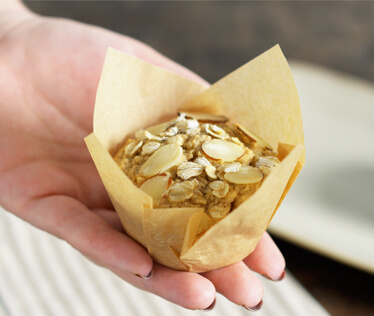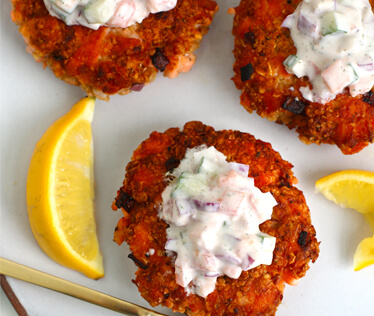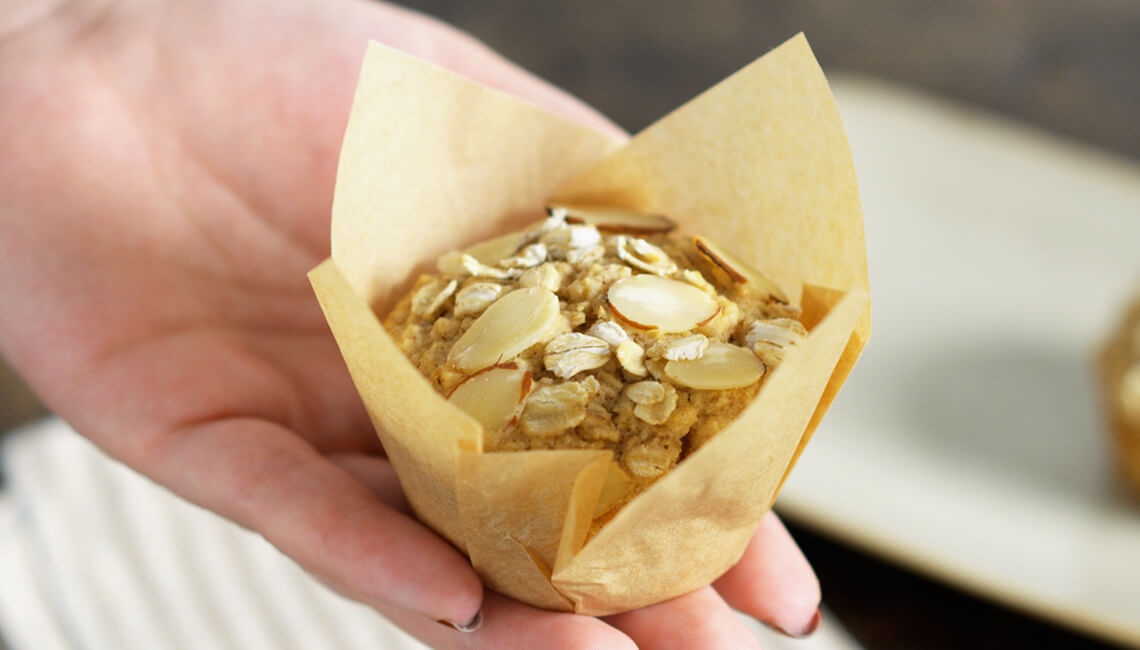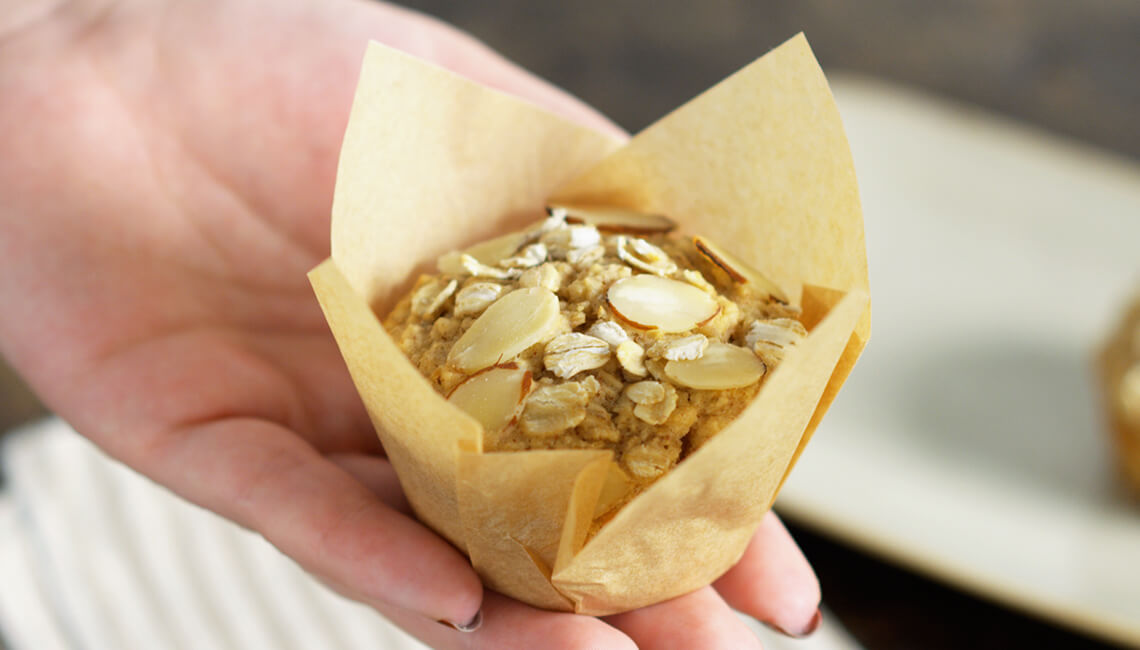According to the American Heart Association, heart disease is the leading cause of death for people of most racial/ethnic groups in the United States, including African Americans, Hispanics, and whites. So with that dismal statistic in mind, we feel that self-care is so important. How you live your life, how often you fit exercise into your schedule, and what you eat all contribute to the state of your health. Taking baby steps with just adding oats to your diet can certainly improve the health of your heart. Oats have been found to reduce blood cholesterol which may help reduce the risk of heart disease. We turned to the manager of nutrition sciences at PepsiCo, Lori Alexander, MSc, MBA, to give us the skinny on oats.


- How do oats help contribute to a healthy heart?
Twenty years ago, Quaker helped establish an FDA food claim to help people understand the heart healthy benefits of oats. The claim highlights the fact that considerable research has shown that three grams of soluble fiber from oats daily, when part of a diet low in saturated fat and cholesterol, can reduce blood cholesterol, which may help reduce the risk for heart disease. One serving of Quaker Old Fashioned Oats provides two grams of soluble fiber. And today, many other products in the Quaker portfolio qualify for the heart-health claim. We’re proud that we’ve been nourishing hearts for 140 years.
- Oats can lower cholesterol but why are oats better than any other food to lower this cholesterol?
Oats are special because of the type of fiber that they contain. There are two main types of fiber, soluble and insoluble. It is the soluble fiber that is associated with lowering cholesterol. Beta-glucan is one form of soluble dietary fiber that has scientific evidence to support its role in promoting heart health. Oats and barley are foods that contain this beta-glucan fiber. Of course, oats should be part of an overall eating plan – low saturated fat and cholesterol – to help lower cholesterol.
- What amount of oats does someone have to consume on a daily or weekly basis to make this difference?
As with any healthy habit, consistency is key, so eating oats regularly is going to be more effective than sporadically including them in your diet. That said, the Food and Drug Administration notes you need to consume at least 3 grams per day of beta-glucan fiber to achieve its cholesterol-lowering benefits. One serving of Quaker Old Fashioned Oats provides two grams of the soluble fiber beta-glucan.
- Are there different grades of oats – what is better for you?
The difference in oats that you’ll see in the store isn’t about the grading of the oats, but rather the convenience factor and how much they come pre-prepared. The three types of oats that are most common are instant, rolled/old-fashioned, and steel-cut. By serving size, all three types of oats have the same nutritional information – the same calories, the same fiber, and the same vitamins and minerals. Because steel-cut oats are denser, the serving size is smaller than instant and rolled oats.
The major difference in the three types of oats is the texture, which is a personal preference, not a nutritional difference.
- Is it okay to eat oats uncooked on a regular basis – like an oats muesli combo for breakfast?
In general, uncooked oats are safe to eat. Many people don’t find dry oats very palatable, but do enjoy uncooked oats in the form of muesli, overnight oats, or energy balls.
- Is there such a thing as too much oat in a diet?
At Quaker, we don’t believe there is such a thing as too much oats, although variety is important in any healthy diet.
- Can stress cause heart problems and what are the dangers and possible solutions?
Yes! Stress is definitely a risk factor for heart disease and unfortunately not enough people know it, which is why we’re trying to fuel a conversation about heart health during American Heart Month. We recently conducted a survey of 500 women that found only 34 percent of women identified stress (34%) as a heart disease risk factor. According to Quaker’s survey, many women are choosing negative coping mechanisms to deal with their stress. Eating foods they know they shouldn’t eat (51%), sleeping less than they should (36%), and being less active (34%) were among the top responses.
Chronic day-in and day-out stress takes a toll on our bodies, specifically by increasing inflammation, which is linked to diseases including heart disease[1]. On top of that, stress often causes poor diet choices, an increase in drinking or smoking, poor sleeping patterns, and skipping exercise. All of those things on their own can be risk factors for heart disease[2]. Instead, good stress management is crucial. From good exercise and eating habits to meditation or talking to a friend or counselor, there are plenty of ways to reduce stress on a daily basis[3]. The key is finding something that works for you, and sticking with it.
[1] Black PH, Garbett LD. Stress, inflammation and cardiovascular disease. J. Psychosom Res. 2002 Jan;52 (1):2 [2] http://www.heart.org/HEARTORG/Conditions/Heart Attack/UnderstandYourRiskstoPreventaHeartAttack/Understand-Your-Risks-to-Prevent-a-Heart-Attack_UCM_0020040_Article.jsp#.WIZYuVMrLGh
[3] http://www.heart.org/HEARTORG/HealtyLiving/Stress Management/Stress-Management_UCM_001082_SubhomePage.jsp
We also asked Quaker Oats to provide us with two healthy recipes using oats for you to try. They are really easy and quick to make.
Almond Butter Muffins
Servings: 1 Dozen

Prep Time: 15 minutes
Cooking Time: 18 minutes
INGREDIENTS:
- 3 Cup(s) plus 1 tablespoon Quaker ®Oats (quick or old fashioned, uncooked)
- 1/2 Cup(s) all-purpose flour
- 2 Teaspoon(s) baking powder
- 1/8 Teaspoon(s) salt
- 1 Cup(s) non-fat milk
- 3 Tablespoon(s) agave nectar
- 1/4 Cup(s) almond butter
- 1 Tablespoon(s) Canola Oil
- 1 Large egg, beaten
- 1 1/2 Tablespoon(s) sliced almonds
PREPARATION:
Heat oven to 400°F. Lightly spray 12 medium muffin cups with cooking spray or line with paper baking cups. Place 1 cup of oats in blender or food processor container and process until oats are finely ground. In large bowl, combine ground oats, remaining 2 cups of oats, flour, baking powder, and salt; mix well. In a small bowl, combine milk, agave, almond butter, oil, and egg; mix well. Add to dry ingredients; stir just until dry ingredients are moistened. Fill muffin cups. Sprinkle with remaining oats and the almonds, pressing lightly into batter. Bake 15 to 18 minutes or until golden brown. Cool muffins in pan on wire rack for 5 minutes. Remove from pan. Serve warm.
Cook Note: To freeze leftover muffins, place in freezer bag; seal securely. Freeze up to 2 months. To reheat in microwave oven, place muffin on microwave-safe plate. Microwave on high about 20 to 30 seconds for one muffin.
NUTRITION:
Calories: 171, Fat: 6g, Saturated Fat: 1g, Cholesterol: 16mg, Sodium: 132mg, Total Carbohydrate: 24g, Fiber: 3g, Sugar: 6g, Protein: 6g, Calcium: 10%, Vitamin D: 3%, Vitamin C: 0%, Vitamin A: 1%, Potassium: 3%, Iron: 8%, Thiamin: 4%, Magnesium: 5%
Dilled Salmon Cakes
Servings: 6
Prep Time: 20 minutes


INGREDIENTS:
SALMON CAKES
- 1 Can (14 3/4 ounces) pink salmon, drained, skin and bones removed
- 3/4 Cup Quaker®Oats (quick or old fashioned, uncooked)
- 1/3 Cup skim milk
- 1/3 Cup liquid egg substitute with yolk or 1 egg, lightly beaten
- 1 Tablespoon finely chopped onion
- 1 Tablespoon finely chopped fresh dill or 1 teaspoon dried dill weed
- 1/4 Teaspoon salt (optional)
SAUCE
- 1/2 Cup plain nonfat yogurt
- 1/3 Cup seeded, chopped tomato
- 1/3 Cup seeded, chopped cucumber
- 1 Tablespoon finely chopped onion
- 1 Tablespoon finely chopped fresh dill or 1 teaspoon dried dill weed
PREPARATION:
In a small bowl, combine sauce ingredients; mix well. Cover and chill while making salmon cakes. In a medium bowl, combine ingredients for salmon cakes; mix well. Let stand 5 minutes. Shape into 6 oval patties. Lightly spray large nonstick skillet with cooking spray. Cook salmon cakes over medium heat 3 to 4 minutes on each side or until golden brown and heated through. Serve with sauce.












